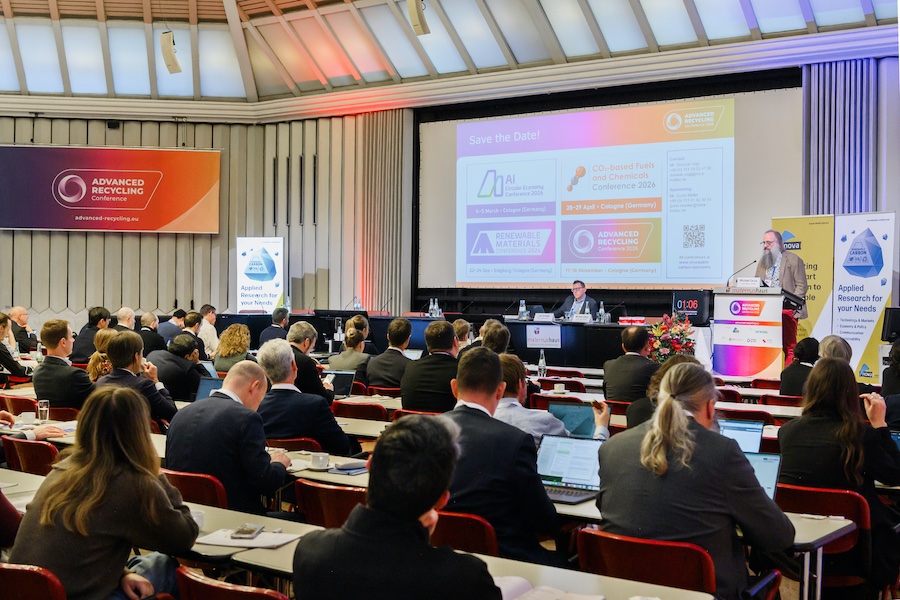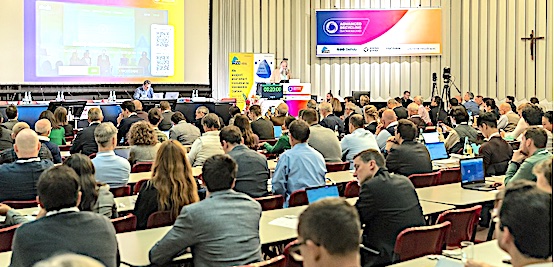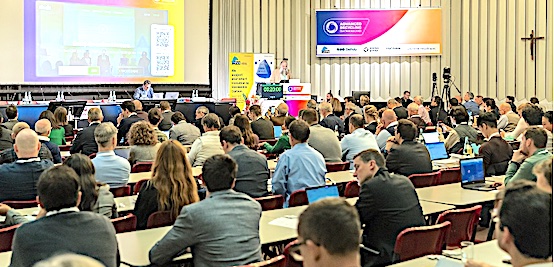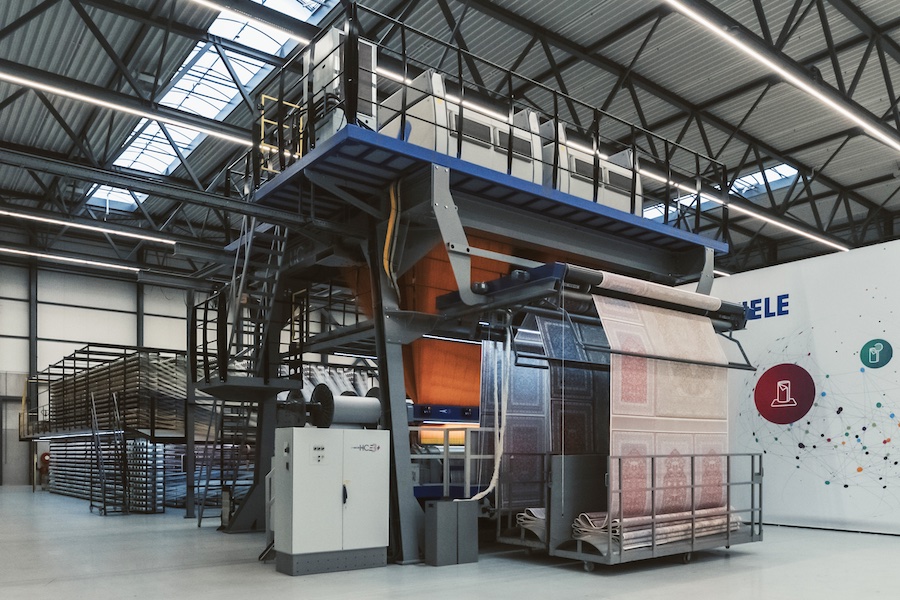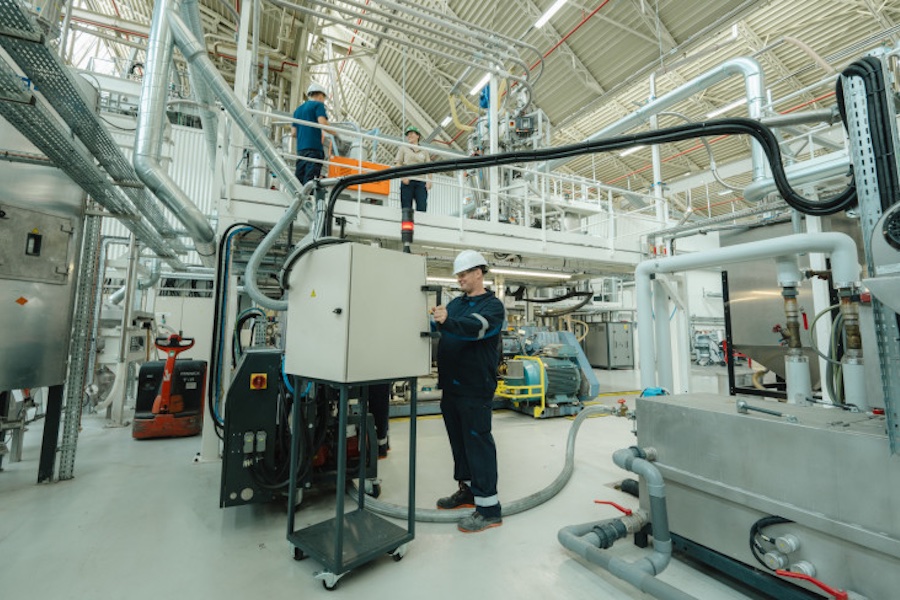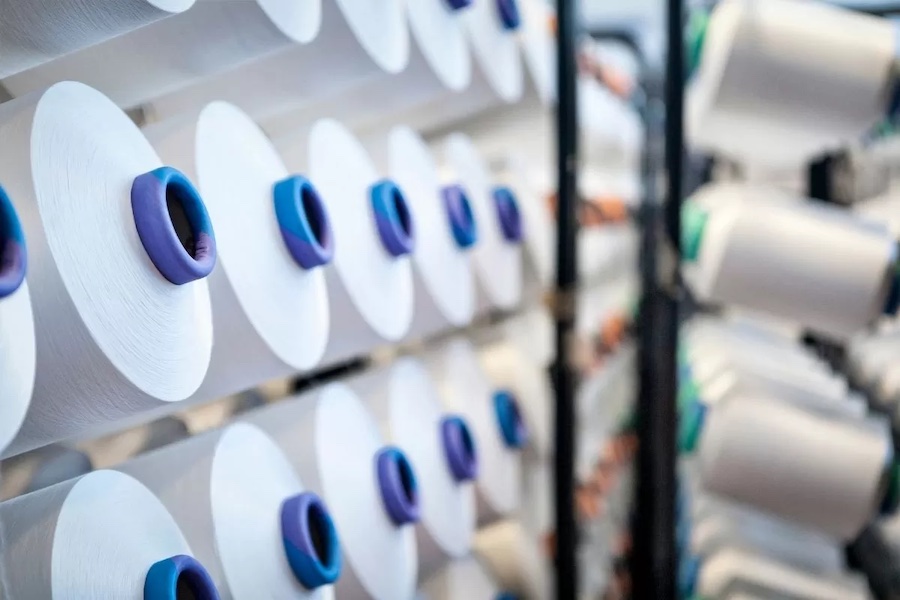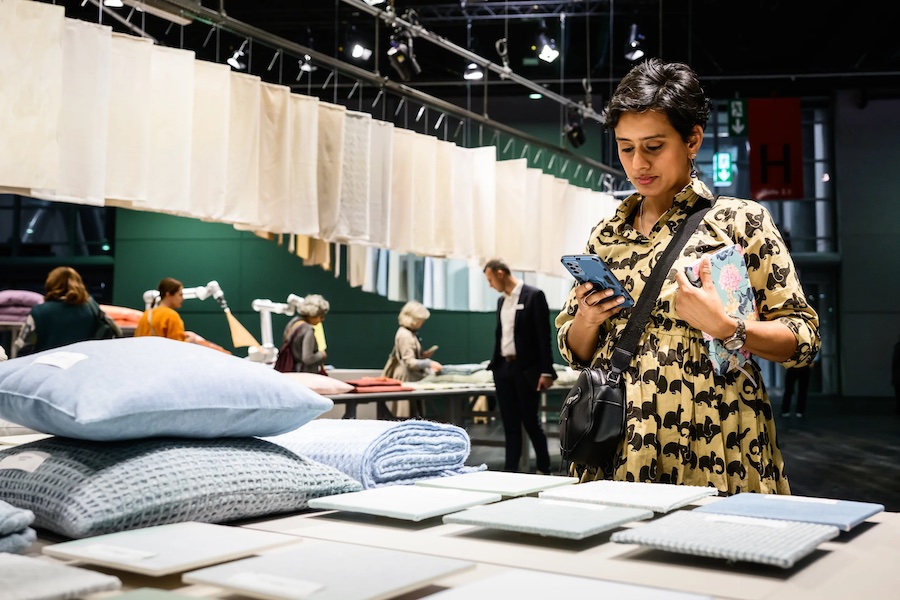#Yarn & Fiber
Cellulose Fibre Innovation of the Year 2025: Six innovations are nominated
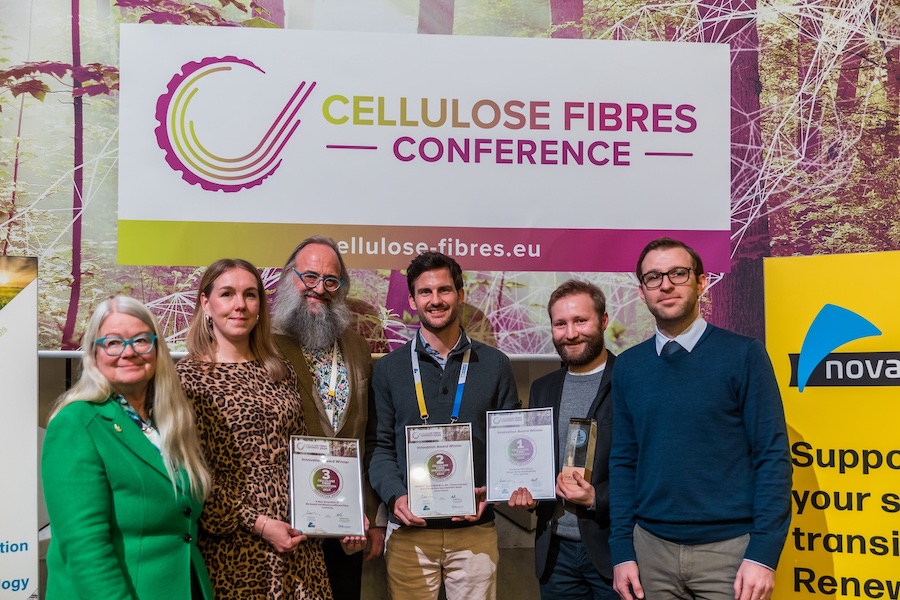
Every year, the conference organisator nova-Institute together with award sponsor GIG Karasek honours companies that impress with their creativity, technological progress and ecological impact. The aim of the award is not only to recognise the winners' innovative products, but also to set an example for the courage to innovate. The use of leaves for cellulose pulp and packaging, seaweed as a feedstock for biosynthetic fibres, plant-based surface material for car interiors and much more – The award nominees are as diverse as the thematic spectrum of the Cellulose Fibres Conference 2025 in Cologne.
The nominees’ presentations, the voting and the winner ceremony will take place on 12 March at the Cellulose Fibres Conference 2025. Participants of the conference can vote live for the three winners. More than 220 people are expected to attend.
The Nominees
Fibers365 (DE): Hemp365 – Agricultural Decorative and Carrier Material
The solution "hemp365" is characterised by the development of a cost-effective, plant-based decorative and carrier material through the chemical-free processing of a regional agricultural fibre and the use of resulting short fibres in a wet-laid process, allowing for a massive reduction in the amount of fossil based binders required for strength and functionality. The non fibre content is less than 7 % and is also made from biogenic and biodegradable material. Hemp365 is 100 % natural and vegan. It has been designed for consumer (fashion) and industrial applications in cooperation with an automotive OEM. fibers365.com
Releaf Paper France (FR): Releaf Fiber – Eco-Friendly Paper from Urban Fallen Leaves
Releaf Paper France transforms urban fallen leaves into sustainable cellulose fibres, offering an eco-friendly alternative to traditional hardwood pulp. Using proprietary low-temperature extraction, high-quality fibres with excellent paper-forming properties are isolated. With a cellulose content of 32-48 % and properties similar to hardwood, RELEAF fibres are ideal for packaging materials like corrugated paper, boxes, and bags. This innovative process, which requires minimal water and non-aggressive solvents, aligns with circular economy principles, repurposing millions of tons of urban leaf waste annually and supporting global brands in achieving sustainable packaging solutions. releaf-paper.com
SA-Dynamics (DE): Cellulose Aerogel Textiles – Next-Generation Insulation Materials
Cellulose Aerogel Textiles are revolutionary insulation materials made from 100 % biodegradable cellulose aerogel fibres. These combine the flexibility and ease of processing of traditional fabrics with the superior thermal insulation properties of aerogels by utilising a novel aerogel fibre process. Lightweight, highly efficient, and compatible with conventional textile machinery, they provide a sustainable alternative to fossil-based and animal-derived insulation materials. Fully recyclable and free from microplastic emissions, Cellulose Aerogel Textiles set a new benchmark for circular economy solutions in the textile and construction industries. Initial functional demonstrators were developed through two projects, funded by Biotexfuture and RWTH Innovation, respectively. sa-dynamics.com
Sci-Lume Labs (US): Bylon® – Renewable Circular Fibres from Agricultural Waste
Sci-Lume Labs makes Bylon®, a scalable, circular, biosynthetic fibre. Using highly efficient chemistries to valorise agricultural waste, Bylon® seamlessly integrates into every step of the global value chain – from raw material production through textile manufacturing. Bylon® is distinct from incumbent and next-gen materials because it is simultaneously bio-based; waste-derived; degradable; recyclable; downstream-compatible; and melt-spinnable. Bylon® also offers a unique performance profile by combining the mechanical properties and tunability of traditional synthetics with the moisture properties and circularity of natural fibres. By not requiring changes to the supply chain, Bylon® empowers the industry to reduce its environmental impact – without compromising on quality, performance, or cost. sci-lumelabs.com
TMG Automotive (PT): REFIBER – Sustainable Automotive Surface Material
Textile-based composite solutions are a growing trend in the automotive sector, especially for decorative and functional interior applications. Innovative plant-based leather demonstrates this trend, combining sustainability with advanced performance. Developed from a biopolymer matrix combined with cellulose waste, this material transforms waste into a premium, eco-friendly solution. Its textile backing and non-woven laminate backing are also made entirely from cellulose fibres, creating a fully integrated bio-based composite. Designed for car interiors and more, this lightweight, durable and aesthetically versatile material sets a new standard for sustainable design, while satisfying the industry's growing demand for circular and renewable alternatives. tmgautomotive.pt
Uluu (AU): Replacing plastic in textiles with natural, seaweed-derived materials
Uluu is an Australian start-up set to replace plastics with natural polymers called PHAs. Uluu materials are made from a regenerative feedstock: farmed seaweed, thus ending reliance on fossil fuels and land crops. Uluu, in partnership with Deakin University, is developing textiles that perform like synthetic polyester but are truly biodegradable and biocompatible, thus eliminating persistent microplastic pollution in fashion. Importantly, Uluu materials are reusable, recyclable, and most importantly, compostable. They are naturally produced through a unique fermentation process that uses seaweed, saltwater microbes and seawater. Uluu pellets can be directly substituted for plastic (e.g., polyester, nylon) in existing melt spinning equipment, creating yarns that can be knitted or woven into textiles. In addition to fibre-grade pellets, Uluu is also producing other grades of pellets to replace plastics used in e.g., buttons, sunglasses, hair clips and packaging. uluu.com.au
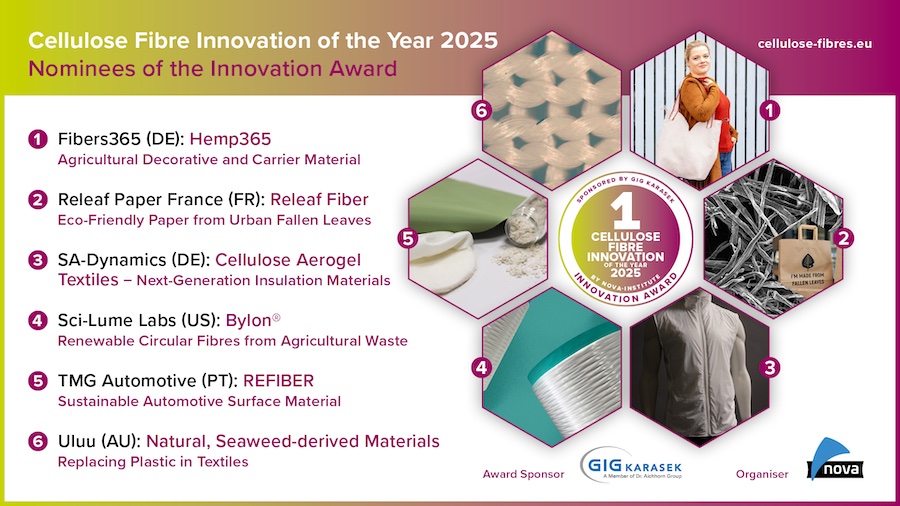
Call for Posters
The poster exhibition is a highly anticipated scientific event at the conference, especially for early career scientists. Poster submission is open until 31 January 2025. cellulose-fibres.eu/call-for-posters/
Program
The program and all information on registration, sponsoring and exhibition is available on
http://www.cellulose-fibres.eu



